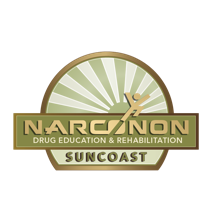Long-term Treatment vs Traditional 28-Day Program

For an addict, the prospect of leaving for treatment for an extended amount of time comes with its own fears. For the addict with a family who depends on them, that prospect can feel overwhelming. For the addict trying to preserve a job while going to treatment, the case is often made that anything over a few weeks simply isn’t feasible. Addiction affects all walks of life, and the circumstances of an addict needing treatment can vary drastically from person to person. I would argue that no matter what inconveniences or difficulties arise from a person leaving for treatment, they pale in comparison to the problems that are created by the said person struggling with addiction. As a person who was in and out of 28-day programs for years (and finally got it right after a 90-day program), I’m going to make the case for why I believe the length of the program shouldn’t be a factor when an addict is looking for treatment. The only factor that should matter is which program gives me the best chance to stay clean and drug-free.
I know how I thought as an addict, and a shorter treatment program always felt more appealing on the surface. I wanted to get in, get through it, and get out as quickly as possible. I was always thinking in the short-term and what was best for me at that moment, and I didn’t have the foresight to tell myself that no matter which treatment facility I chose or what the length of time was, if I got it right this time I wouldn’t need to keep coming back to 28-day programs over and over again. In truth, getting back to another treatment facility was the best-case scenario for a “chronic relapser”—a label I created for myself back then. The reality is that if it’s a month, 3 months, or longer, the time will only be meaningful if it’s used to make changes that are going to be lasting and impactful. If it’s not, then addiction will continue and life will inevitably get worse for the addict and their loved ones.

With all that said, I believe that a longer treatment program stands a better chance of reaching the desired result, which is to remain drug-free and clean. The reason I believe this is simply from my own experience, both as an addict and as a person who works with people trying to clean up their lives. The first few weeks of coming off drugs can be rough, especially when that time isn’t used efficiently to help the mind and body heal from drug abuse. I used to have the mindset, every time I tried to get clean, that as soon as I started to feel somewhat normal again that I was ready. Enough wasting time with rehabs, I’d wasted enough time on drugs. I wanted so badly to get on with my life that I never stopped to think about why things got so bad in the first place or take a committed approach to make changes that weren’t superficial and would mean something to me and that I would sustain throughout my life. The reason I never did this is that I never took the time to do so after I got to feeling a little better. I was attempting to make those changes when my body still felt the aftermath of drug abuse and my mind was still dealing with the emotional roller coaster that an addict will inevitably experience when coming off drugs.
It was at an approximately 90-day program where I gave myself the chance to make a real course correction in life, a program that afforded me the time to do what was necessary to finally put addiction behind me for good.
Recovering from drug addiction is the best feeling I have ever had and something that I am very proud of today. That didn’t happen by trying to rush past addiction and throw it in the rearview mirror as quickly as possible. That mindset only made me miss everything I needed to do to fix myself and figure out who I wanted to be and how I wanted to live once I recovered.
The simplicity is to get it right and not worry about how long it will take or the difficulties that may arise during that time. There is no comparison between those difficulties and what could happen if it isn’t done right this time. The reality is that addiction takes lives, it ruins lives, and it leaves families destroyed in its wake unless it is handled. The flip side is that addiction can be overcome, and life can and will get drastically better for all involved when that happens.
If you or anyone you know is seeking help, do yourself a favor and take the best chance possible to rid yourself of addiction and become drug-free for good.
Justin P.—Author and Narconon Suncoast Graduate

